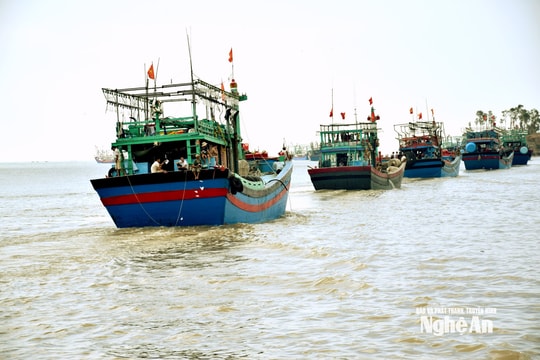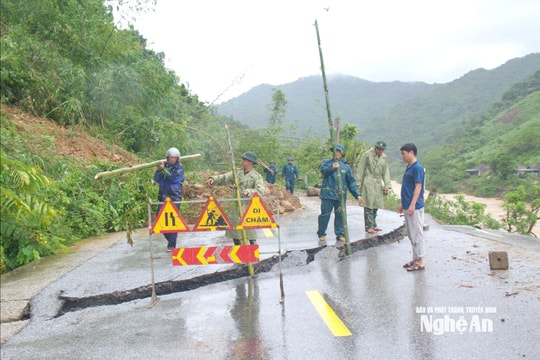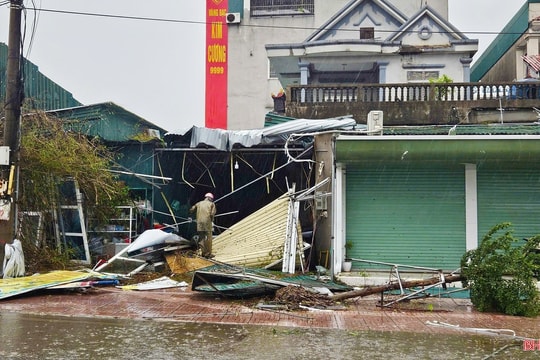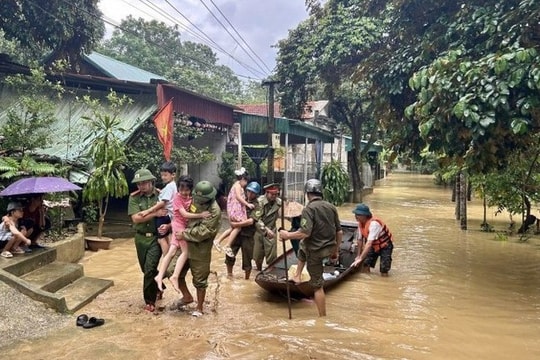The Prime Minister requested ministries, branches and localities to proactively prevent and combat landslides before and during the flood season.
Prime Minister Pham Minh Chinh has just signed an official dispatch requesting ministries, branches and localities to proactively prevent landslides and ensure the safety of people's lives and property before and during the flood season.
The content of the telegram clearly stated that, due to the impact of climate change, natural disasters are increasingly extreme and unpredictable, prolonged severe heat, localized heavy rain in many localities, continuous riverbank and coastal landslides in the Mekong Delta and some provinces in the South Central region, landslides caused by heavy rain in the mountainous areas of the North, Central region and Central Highlands have caused great damage to people, houses, property of people and infrastructure works.
The Prime Minister has directed the prevention of landslides, riverbank and coastal erosion.
From the beginning of 2023 until now, in the Mekong Delta alone, there have been 122 landslides affecting residents, dyke works, traffic, and mangrove forests; recently, landslides in Bac Kan, Lam Dong, etc. have also caused unfortunate losses of people and property.
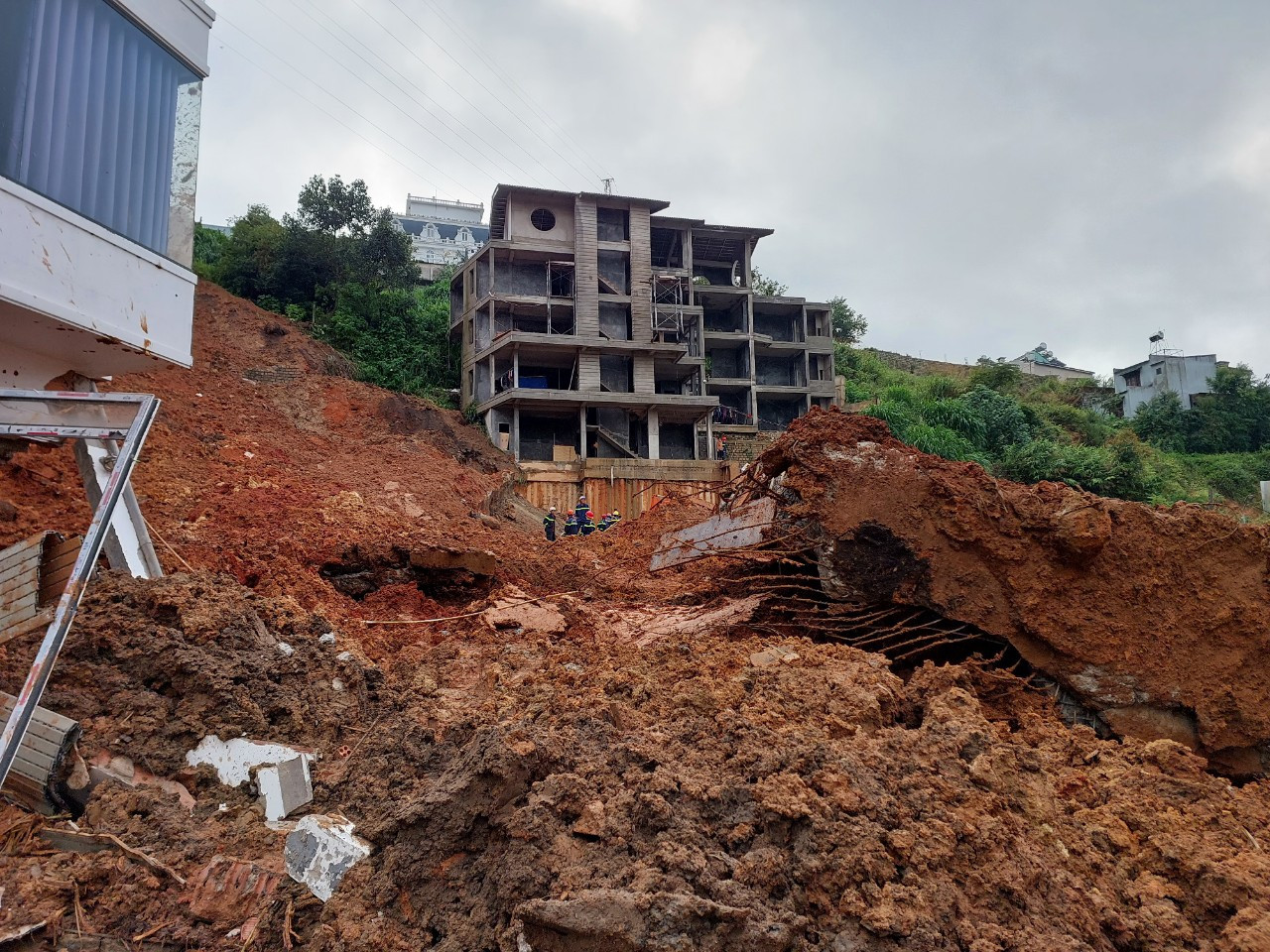
To proactively prevent and combat landslides, ensure safety of life, limit property damage to people and infrastructure works, especially in the upcoming rainy and stormy season, the Prime Minister requested Ministers, Chairmen of People's Committees of provinces and centrally run cities, and the National Steering Committee on Natural Disaster Prevention and Control to proactively direct and deploy natural disaster prevention and control work in general and landslides in particular.
The Prime Minister requested the Chairmen of the People's Committees of provinces and centrally-run cities to direct competent agencies and forces to prevent and control natural disasters at the grassroots level.
Organize inspections and reviews of residential areas, schools, medical facilities, agency headquarters, barracks along rivers and streams... to promptly detect areas at risk of landslides during heavy rains. At the same time, have plans to support resettlement and stabilize the lives of displaced households.
Strictly manage, strengthen inspection and supervision of licensing and sand and gravel exploitation on rivers, streams, canals and ditches to limit landslides.
Check safety assurance at construction sites, especially construction works in residential areas along rivers, streams, canals, and slopes; suspend construction if safety is not ensured or there is a risk of landslides, affecting water flow and flood drainage.
In the long term, it is necessary to strictly control the planning and construction of houses and works along rivers, streams, canals and seas to overcome the situation of houses and works encroaching on the flow, increasing the risk of being affected by landslides.
Require relevant ministries, departments and branches to closely coordinate with press agencies, television stations... to increase the dissemination of knowledge, instruct people on skills to recognize signs of possible landslides, riverbank and coastal landslides so that people can proactively evacuate and relocate before landslides occur.
Direct localities to strictly manage the exploitation of sand and gravel on rivers in accordance with the law, urge localities to deploy urgent measures to prevent and combat landslides and implement the Project on preventing and combating riverbank and coastal landslides until 2030 approved by the Prime Minister; continue to promote the planting of wave-breaking trees and mangrove forests along the coast to prevent and combat landslides.


